Happy Holidays!
We decided to dedicate this Holiday Edition of the Goddess Inquirer to the diversity and wide range of ways we humans celebrate the Holiday Season (now and the days of yore).
As we researched and explored the many ways people celebrate, we found ourselves moved by the many expressions of faith and wisdom embedded in our various religious traditions and beliefs.
We say faith, and what the facts are, do not have to be the same. Facts are about the objective world and what is observable and happening in it. Faith is about the meaning we give those things. As humans, we rely on symbolism and faith to engage us in deeper purpose and connection.
Enjoy this tour through some of the most well known of the many, many, holiday celebrations we are in the midst of right now. It is our intention that through learning we all gain more access to those deeper meanings and find more and more to celebrate in each other.
We begin with Kwanza, which is being celebrated right now ...
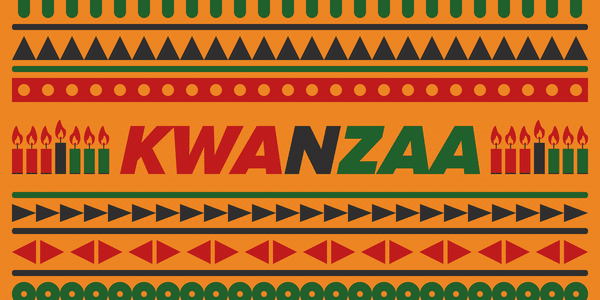
Happy Kwanza!
Or Habari Gani … Swahili for "How are you?"
Kwanzaa is a weeklong celebration held in the United States that honors African heritage in the African-American culture. Kwanzaa is observed from December 26th, to January 1st, and culminates in gift giving and a big feast.“The holiday is relatively new compared to other holidays celebrated in the U.S. Dr. Maulana Karenga, professor and chairman of Africana Studies at California State University, first created Kwanzaa in 1966.”
“Seven guiding principles, created by Dr. Karenga, are discussed during the week of Kwanzaa. The seven principles represent seven values of African culture that help build and reinforce community among African-Americans.”
- Umoja: Unity - To strive for and maintain unity in the family, community, nation, and race.
- Kujichagulia: Self-Determination - To define ourselves, name ourselves, create for ourselves, and speak for ourselves.
- Ujima: Collective Work and Responsibility - To build and maintain our community together and make our brothers’ and sisters’ problems our problems and solve them together.
- Ujamaa: Cooperative Economics - To build and maintain our own stores, shops, and other businesses and to profit from them together.
- Nia: Purpose - To make our collective vocation the building and developing of our community in order to restore our people to their traditional greatness.
- Kuumba: Creativity - To always do as much as we can, in the way we can, in order to leave our community more beautiful and beneficial than we inherited it.
- Imani: Faith - To believe with all our heart in our people, our parents, our teachers, our leaders, and the righteousness and victory of our struggle.
We could all benefit from the observance and celebration of these principles. To read the full story about Kwanza CLICK HERE.
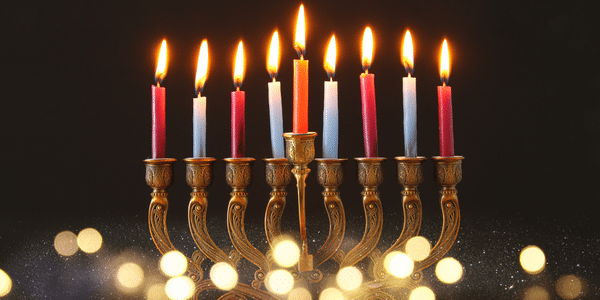
Happy Hanukkah!
"The eight-day Jewish celebration known as Hanukkah or Chanukah commemorates the rededication during the second century B.C. of the Second Temple in Jerusalem, where according to legend Jews had risen up against their Greek-Syrian oppressors in the Maccabean Revolt.
Hanukkah, which means “dedication” in Hebrew. Often called the Festival of Lights, the holiday is celebrated with the lighting of the menorah, traditional foods, games and gifts. Hanukkah has a minor place in the religious ceremonies that are part of the Jewish tradition; it has gained popularity by virtue of it’s close proximity to Christmas. "
Like most of our traditions today, Hanukkah has a rich and exciting history. It is full of miracles, such as one day of oil lasting eight days. AND high dramas, such as the story of Judith seducing and beheading an enemy of the Jewish people. They were so dismayed that they never attacked and Judith and her people lived in peace. Judith makes it to 105 years old in this story. Turns out the evidence shows this was not likely a true story, but it is one that would make an excellent Hollywood production!
But seriously, reading the history and traditions of Hanukkah with everything from the lighting of the Menorah and the rituals and blessings that go with the lighting of each candle to the carefully and lovingly prepared foods are inspiring. Hanukkah is a beautiful and rich tradition that has provided hope and light for the Jewish people throughout trying times.
Check out this great article with accompanying short video clips (Judith's story!) about the Hanukkah on History.com.
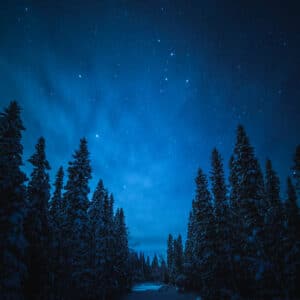
The Winter Solstice ...
"The winter solstice is a special time for those who honor and acknowledge the patterns of our natural world.
On this day, the sun is at its lowest point in the sky, traveling across the sky world above us in a short stride, resulting in the shortest day and the longest night of the year in the Northern Hemisphere. For Indigenous people across the globe, the natural world is a source of teachings about natural and universal laws. In understanding the interconnectedness of all things, we recognize that the cosmos– the sun, moon, stars, and other planets– affect us and connect us in undeniable ways.
In the spirit of self care, community care, accessing our ancestral memory and our most powerful selves, here are 14 different ways that you and your loved ones can spend the winter solstice in observance of a natural phenomena that comes only once a year."
While the Winter Solstice was December 21st we think any of these 14 self care ideas would be great during the long winter days—especially while we all continue to stay home to take care of ourselves and others!
To read more about the history of the Winter solstice and the important role it plays in of many Indigenous cultures spiritual beliefs CLICK HERE.
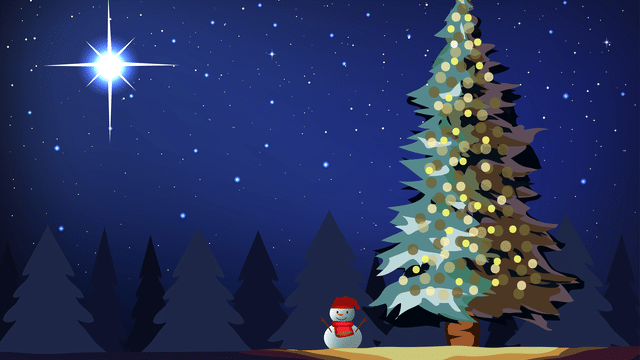
Merry Christmas ...
"Christmas is celebrated on December 25, and is both a sacred religious holiday and a worldwide cultural and commercial phenomenon." ~ History.com
While most of us grew up with the story of Jesus’ birth as the reason for the holiday, as usual, the full story goes a bit deeper. Christmas, as we celebrate it, came from a combination of a few things: the story of Jesus and the church’s designation of his birthday, the pagan celebrations of riches and resources, and the Norse Yule winter solstice celebrations just to name a few! Here are some highlights …
“Unfortunately, the Bible does not mention the date for his birth (a fact Puritans later pointed out in order to deny the legitimacy of the celebration). Although some evidence suggests that his birth may have occurred in the spring (why would shepherds be herding in the middle of winter?),”
“In the fourth century, the church decided to institute the birth of Jesus as a Holiday. Pope Julius I chose December 25. It is commonly believed that the church chose this date in an effort to adopt and absorb the traditions of the pagan Saturnalia festival.”
Like most of the pagan celebrations, Saturnalia is a fun one!
“In Rome, where winters were not as harsh as those in the far north, Saturnalia—a holiday in honor of Saturn, the god of agriculture—was celebrated. Beginning the week leading up to the winter solstice and continuing for a full month, Saturnalia was a hedonistic time. Food and drink were plentiful and the normal Roman social order was turned upside down.”
We find this over the top celebration a common theme among many of the traditions
“By holding Christmas at the same time as traditional winter solstice festivals, church leaders increased the chances that Christmas would be popularly embraced. However, this also meant they gave up the ability to dictate how it was celebrated. By the Middle Ages, Christianity had, for the most part, replaced pagan religion.”
Christmas was cancelled … a few times!!
“In the early 17th century, a wave of religious reform changed the way Christmas was celebrated in Europe. When Oliver Cromwell and his Puritan forces took over England in 1645, they vowed to rid England of decadence and, as part of their effort, cancelled Christmas.”
“The pilgrims, English separatists that came to America in 1620, were even more orthodox in their Puritan beliefs than Cromwell. As a result, Christmas was not a holiday in early America. From 1659 to 1681, the celebration of Christmas was actually outlawed in Boston.”
“Then again, after the American Revolution, English customs fell out of favor, including Christmas. In fact, Christmas wasn’t declared a federal holiday until June 26, 1870.”
“It wasn’t until the 19th century that Americans began to embrace Christmas. Americans re-invented Christmas, and changed it from a raucous carnival holiday into a family-centered day of peace and nostalgia.”
The commercialization part ... we will leave that to your imagination. From what we can tell, the Pagan ideas never quite surrendered. 😉
To read the full History article and explore the origins and history of Christmas.
CLICK HERE to read the entire story … it doesn’t disappoint!
Happy Holidays to YOU!!!
Like the Archetypes of Goddess help us understand our feminine side, these various traditions give us new ways to know and understand ourselves and our human family. We invite you to take on and have faith in the meanings that bring you JOY and leaves you with a sense of confidence in your higher self!
With Love,
Anne & The Goddess Guides
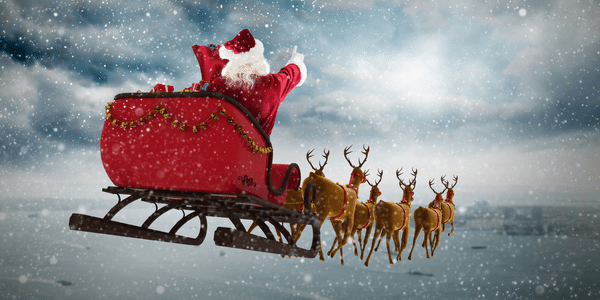
P.S. Who Invented Santa Claus?
We can’t talk about Christmas and leave out the important contribution of our Norse friends … Santa Claus!!!
The legend of Santa Claus can be traced back to a monk named St. Nicholas, who was born in Turkey around 280 A.D. St. Nicholas gave away all of his inherited wealth and traveled the countryside helping the poor and sick, becoming known as the protector of children and sailors.
St. Nicholas first entered American popular culture in the late 18th century in New York. Dutch families gathered to honor the anniversary of the death of “Sint Nikolaas” (Dutch for Saint Nicholas), or “Sinter Klaas” for short. “Santa Claus” draws his name from this abbreviation.
